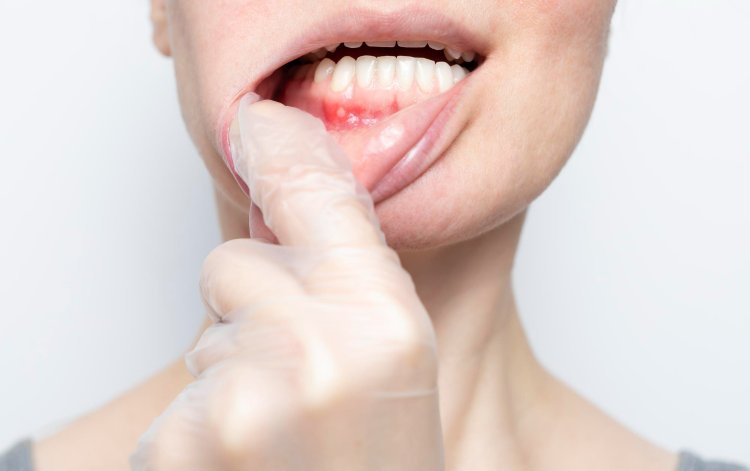What is Oral Thrush? Symptoms and Treatment
Maintaining a delicate balance of microorganisms within the body is crucial for overall health. However, when this balance is disrupted, it can pave the way for opportunistic pathogens to flourish, leading to various infections. One such infection is oral thrush, a fungal overgrowth primarily caused by Candida Albicans. This article delves into the intricacies of oral thrush, exploring its symptoms, underlying causes, methods of diagnosis, and effective treatment strategies.

What is Oral Thrush?
Oral thrush, clinically termed oral candidiasis, is a fungal infection characterized by the presence of white, creamy patches on the mucous membranes of the mouth and throat. These lesions, often resembling cottage cheese in appearance, can develop on the inner cheeks, tongue, gums, palate, tonsils, and throat. While oral thrush is most commonly associated with infants and young children, it can affect individuals of any age, particularly those with compromised immune systems.
Symptoms of Oral Thrush
The presentation of oral thrush can vary depending on the severity of the infection and the individual's immune response. In its early stages, oral thrush may be asymptomatic or exhibit mild symptoms. However, as the infection progresses, the following manifestations may become apparent:
- White, curd-like patches on the oral mucosa, which may be easily wiped away to reveal underlying erythematous (red) tissue
- Soreness or burning sensation in the affected areas
- Loss of taste or altered taste perception
- Dry, cracked skin at the corners of the mouth (angular cheilitis)
- Difficulty swallowing or discomfort while eating or drinking
- Bleeding or slight mucosal trauma when the white patches are scraped or rubbed
In infants and young children, oral thrush can lead to feeding difficulties, irritability, and reluctance to suckle. Parents should pay close attention to their child's oral health and seek medical advice if they notice any concerning symptoms.
Causes of Oral Thrush
The development of oral thrush is intricately linked to disruptions in the oral microbiota and predisposing risk factors. While Candida Albicans is a commensal fungus commonly found in the oral cavity, certain conditions can promote its overgrowth and colonization. Key factors contributing to the pathogenesis of oral thrush include:
- Weakened Immune System: Immunocompromised individuals, such as those living with HIV/AIDS, undergoing chemotherapy, or taking immunosuppressive medications, are more susceptible to fungal infections like oral thrush.
- Antibiotic Use: Broad-spectrum antibiotics can disrupt the normal flora of the mouth and predispose individuals to fungal overgrowth by suppressing competing bacterial species.
- Diabetes Mellitus: Poorly controlled diabetes, characterized by elevated blood glucose levels, creates a conducive environment for Candida growth due to the presence of excess sugars in saliva and mucosal secretions.
- Denture Wear: Ill-fitting or poorly maintained dentures can cause mucosal trauma and create localized areas of irritation, providing an entry point for fungal colonization.
- Dry Mouth (Xerostomia): Reduced salivary flow, whether due to medical conditions, medications, or dehydration, can impair the mouth's natural defense mechanisms and promote fungal adherence to mucosal surfaces.
Diagnosis of Oral Thrush
Diagnosing oral thrush typically involves a comprehensive clinical assessment supplemented by microbiological investigations. Healthcare providers may perform the following steps to confirm the presence of oral thrush:
- Physical Examination: The clinician inspects the oral cavity for characteristic signs of thrush, including white plaques or patches, erythematous mucosa, and associated symptoms such as pain or discomfort.
- Microscopic Examination: A swab or scraping of the affected mucosa may be collected and examined under a microscope to identify fungal elements such as hyphae or yeast cells.
- Cultural Analysis: In some cases, a sample may be cultured on specific growth media to isolate and identify the causative organism, helping guide targeted treatment approaches.
Treatment of Oral Thrush
Effective management of oral thrush hinges on eradicating the fungal infection while addressing underlying predisposing factors. Treatment modalities may include:
- Antifungal Medications: Topical antifungal agents such as clotrimazole, nystatin, or miconazole are commonly prescribed for uncomplicated cases of oral thrush. For more severe or recurrent infections, systemic antifungal therapy with fluconazole or itraconazole may be indicated.
- Oral Hygiene Measures: Maintaining good oral hygiene is paramount for preventing thrush recurrence and promoting mucosal healing. Patients are advised to brush their teeth and tongue gently twice daily, use alcohol-free mouthwashes, and rinse with saline solution to soothe oral discomfort.
- Correction of Underlying Factors: Addressing predisposing risk factors such as uncontrolled diabetes, immunosuppression, or denture-related issues is essential for preventing recurrent episodes of oral thrush.
- Nutritional Support: Adequate nutrition and hydration are vital for supporting immune function and mucosal integrity. Patients with oral thrush should consume a balanced diet rich in vitamins, minerals, and protein while avoiding excessive sugar intake.
- Follow-Up Monitoring: Regular follow-up appointments with healthcare providers allow for ongoing assessment of treatment response, monitoring for adverse effects, and adjustment of therapeutic regimens as needed.
In conclusion, Oral thrush represents a common yet potentially debilitating fungal infection that can significantly impact oral health and quality of life. Early recognition, prompt intervention, and comprehensive management are essential for achieving successful outcomes and preventing disease recurrence. By addressing underlying predisposing factors and implementing targeted treatment strategies, healthcare providers can effectively manage oral thrush and promote optimal oral health in affected individuals.
#OralThrush #Candidiasis #FungalInfection #OralHealth #Dentistry #ImmuneSystem #AntifungalTreatment #OralHygiene #MedicalDiagnosis #HealthcareManagement #PreventiveCare #HealthyLiving
Disclaimer:
The information provided in this article is for educational purposes only and should not be considered medical advice. If you have any health concerns or are experiencing symptoms, it is important to consult with a healthcare professional, such as a doctor or clinic, for proper diagnosis and treatment. Always seek the advice of your doctor or other qualified health provider with any questions you may have regarding a medical condition. Do not disregard professional medical advice or delay in seeking it because of something you have read in this article.
What's Your Reaction?





















